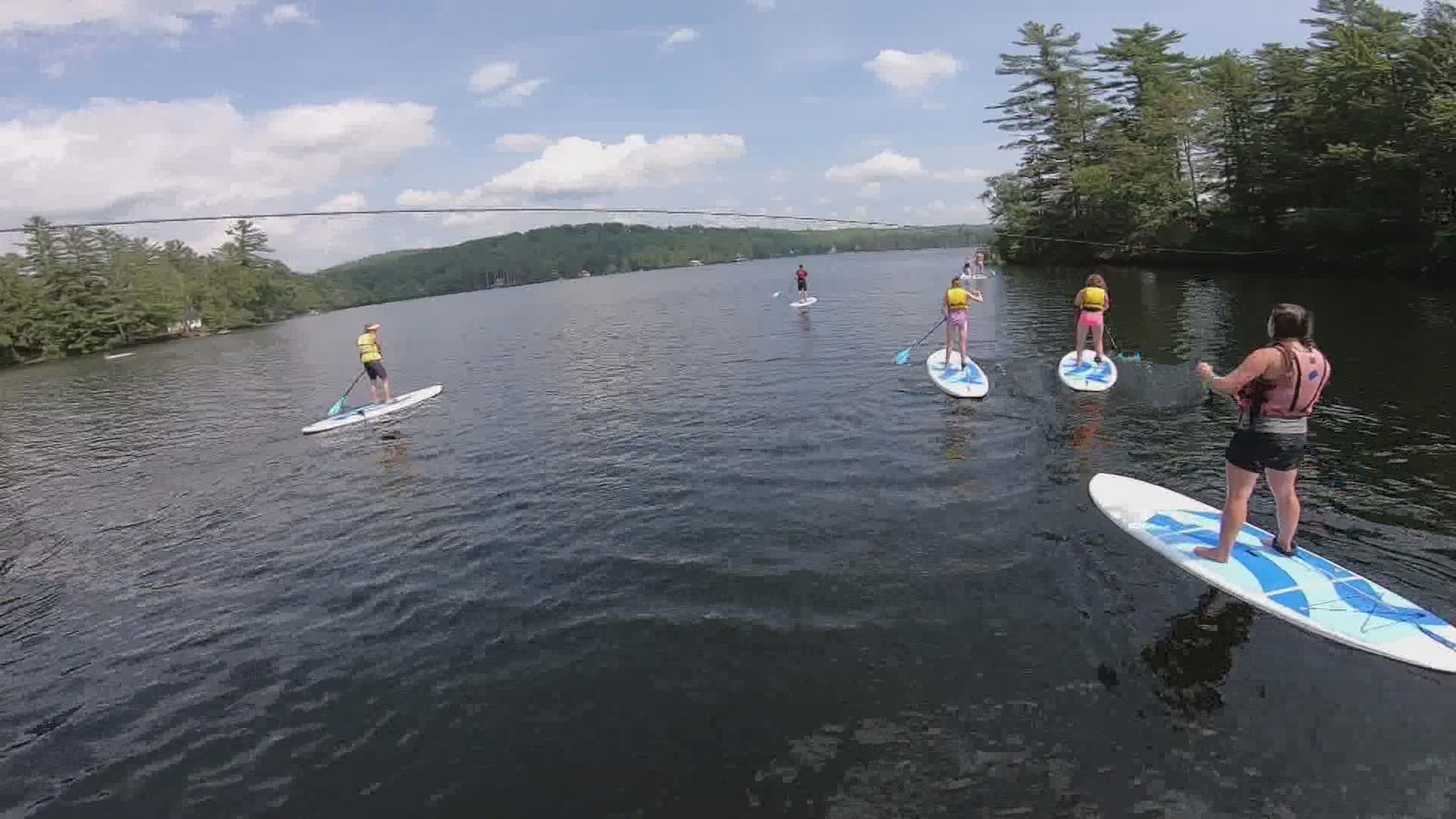BETHEL, Maine — "It really only takes one caring adult to show a kid that they are capable of whatever they dream up. Whatever they want to do with their life."
For the students in the Northstar program, Lyndsey Smith is that caring adult.
"I think probably my number one goal and tool is exposure. So just exposing them to new people and new things, new places, you know, all of that," Smith said.
Smith is the director of Northstar, one of six programs that make up the Lerner Foundation’s Aspirations Incubator. About six years ago, the foundation made the unusual decision to devote all of its assets to six multi-year pilot programs across the state, aimed at raising the aspirations of Maine’s rural youth.
Ryder Scott is the Executive Director of the University of Maine 4-H Center at Bryant Pond, where the Northstar program is based.
"The transition from grades 8 to 9 is a critical, critical period for youth," he said. "By about the first half of ninth grade, young people will have formed an image of who they are and where they’re going and in many cases, especially in rural parts of the state, that does not include going to college, it does not necessarily include any aspiration even to graduate from high school. And so, that’s exactly the problem that the Aspirations Incubator is intended to solve. The method, the way we’re solving that problem is – first of all, it’s very simple. It’s making sure that those students know that they have at least one, and preferably a group of caring adults in their life. In their corner."
Students join the Northstar program in seventh grade and stay through their high school graduation. Smith gets six years to be there for these kids, and oversees expeditions, volunteer opportunities, community engagement, and visits to college campuses with them – things they might not get to do if they weren’t part of Northstar.
Noah Cunnington is a student in the Northstar program.
"I always get to talk to her if we go skiing or something and on the chairlifts we talk a lot and usually we – she lets us have one on one time a lot – it’s really good to have someone there except for my parents," Noah said.
Smith puts it this way: "I think the exposure piece is huge, and the support system and the relationships. Getting them out, and getting them in to new environments as often as we possibly can, and getting them comfortable in their own skin in new environments is really the key point to that."
"Our Northstar students know that Lyndsey knows who they are, knows their story, knows their struggle and their triumphs, and that she cares. She’s there for them, she literally shows up for them in their lives," Ryder added.
The Aspirations Incubator programs are now entering their fifth year, and data from the first years are showing positive outcomes.
"This mentorship model is working. This is something that could move the needle for rural youth in raising aspirations and closing that education gap...and addressing the cycles of generational poverty," Ryder said.
This program is not designed for ‘at-risk’ youth but rather serves a mix of kids.
Nancy Babcock is a volunteer mentor in the program.
"They come from all different backgrounds and they’re all different kids … some of it, being in a group is just learning how to get along with people who aren’t necessarily the same as you," she said.
Anna Sysko, a single mom, has a 14-year-old daughter in the program.
"The great part about this program is it doesn’t end … it doesn’t end after one year. It continues," Sysko said. "Perhaps when she’s done with her school years here that she will have – she’ll have something strong and confidence boosting and she’s got a bit of an army she can call on, or look back on, or be inspired by!"
Ryder sums it up this way: "Our kids are in Northstar, part of the Aspirations Incubator, because they want to be. Because they feel a sense of belonging. Along the way, the subtle progression, the thought process behind the program development leads them to the conclusion, ideally, yes I can go to college, Yes I can aspire to something…something great."
"I guess no matter what they do, because aspirations look different for everyone, but no matter what path they choose, that they feel supported, that they can encourage and support others, and that they can fit in to their life goals by being able to be good citizens wherever they live, being able to find community," Smith added. "That’s really my ultimate goal is that they have they lives that they really want, that they’ve dreamed up. Because they know they can do it."
The first group of students who became part of the Aspirations Incubator are now entering their junior year, which will be their fifth year as part of Northstar. The Lerner Foundation hopes this work will lay the groundwork for more programs like these to be available to a larger population of Maine students.

